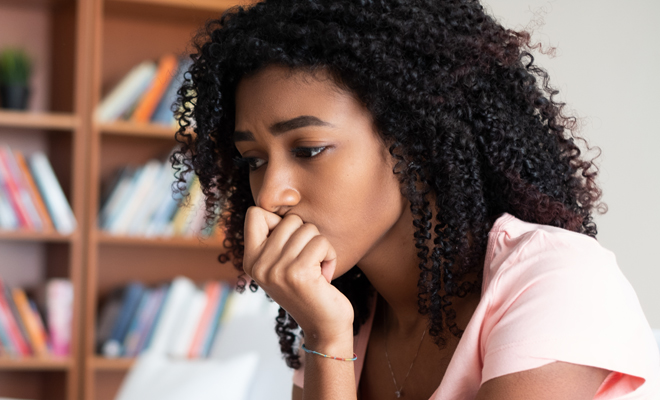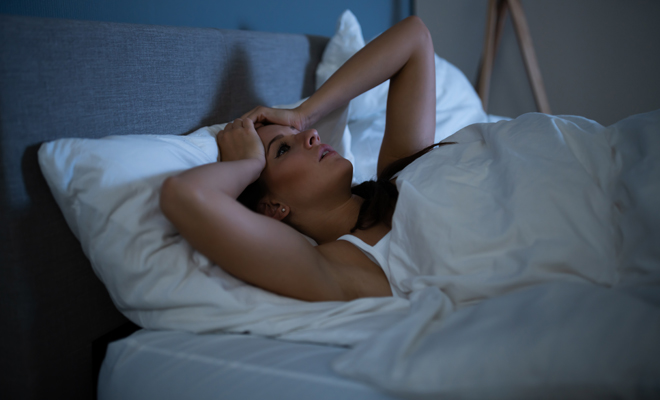All people experience anxiety at some point in their life, and there is nothing wrong with this; the problem lies in the fact that the level of anxiety is significant or that it is present for a long time. More and more people suffer from anxiety problems and little by little manage to live with it, make non-aggression pacts and overcome the worst moments.

It is normal to feel a little anxious when we have to do something that tests us like taking an exam, attending a job interview, etc., but when this discomfort is present frequently in our lives, this becomes a real problem. Problem.
There is always a first time for everything and those people who experience anxiety for the first time are so confused that they do not know what is happening to them. The truth is that anxiety does not come suddenly, it builds up over time, what does appear suddenly is the dreaded anxiety attack.
What is anxiety?
The DSM-5 (Diagnostic and Statistical Manual of Mental Disorders) defines anxiety as a normal emotional reaction necessary for the survival of individuals and our species. However, anxiety reactions may reach excessively high levels or may be maladaptive in certain situations.
For his part, Beck (1985) defines anxiety as the perception of the individual at an incorrect level, being based on false premises.
It is therefore a perceived feeling of concern that entails a feeling of restlessness that makes us feel nervous in the face of situations that have not yet occurred. It can even be experienced as fear and in some cases panic.
But make no mistake, anxiety itself is not bad. On the contrary, it is a very useful defense mechanism that we human beings have, since it allows us to activate ourselves and respond to situations in which our lives and safety may be in danger.
It is perfectly normal and helps us in an adaptive sense. The problem appears when the anxiety we experience is constant and affects us in the regular performance of our daily activities.
How do I know if I have anxiety? Most common symptoms
The signs and symptoms of anxiety are very varied, which can make diagnosis difficult. There are physical, emotional and even social symptoms related to this pathology. Here we present some of them:
Physical symptoms
- Frequent headaches.
- Stomach discomfort: nausea, vomiting, diarrhea, flatulence, constipation, difficulty digesting food, etc.
- Increased blood pressure and in some cases tachycardia.
- Muscle aches throughout the body, for no apparent reason.
- Breathing difficulties . You feel like you are short of breath.
- Sleep disturbances. You suffer from insomnia or have trouble falling asleep and spend the entire day sleepy.
- Appetite changes. You may feel hungrier than usual or lose your appetite altogether.
- Chest pain that can range from mild discomfort to pain that can be mistaken for a heart attack.
Psychological symptoms
- Extreme irritability in any situation.
- Memory problems. You have a hard time remembering things.
- About thinking about things, even those that may seem silly to others, are a source of anguish for you.
- Emotional overflow. Crying without control or apparent reason.
Social symptoms
- Deterioration of interpersonal relationships due to hostile attitudes and behaviors.
- Difficulties communicating with others assertively.
- Keep in mind that experiencing anxiety about a specific event or presenting some of these symptoms does not imply that you suffer from an anxiety disorder. But if it causes you discomfort, it may be a sign that stress and anxiety levels are high, in which case we recommend seeking the help of a mental health professional.
Why do I have anxiety?
The causes of anxiety are diverse and can respond to changes in the chemistry of your brain, in the production or reception of neurotransmitters. It may also be due to some traumatic or highly stressful situation that you have experienced, either on a one-off or recurring basis.
There are environmental factors that can lead to the appearance of anxiety, such as problems at work, in your family or with your partner. Genetics also play a role; it is known that people with a family history of anxiety are more prone to it.
Hormonal imbalances in your brain chemistry can lead to high levels of anxiety, and the same goes for some medications and (withdrawal from) toxic substances. In addition, medical factors such as very long recoveries or complex surgeries can also lead to anxiety.
What can I do if I have anxiety?
Anxiety occurs when our brain focuses on future events that have not yet happened (and it is likely that they will never happen), so what you should do is try to keep your mind present in the here and now.
The importance of the here and now in daily tasks
We know it sounds easy but in practice things are a bit more complex, but don’t worry. You don’t have to become a Zen monk to achieve this, nor are major momentous changes necessary.
You can try small things within the performance of daily activities, for example: when drinking your coffee in the morning, try to focus your attention on everything that it implies: the smell, its taste, how the cup of coffee feels in your hands etc. Nothing happens if you get distracted; you just try again.
Yoga, Tai Chi and other activities
You can try other types of activities such as practicing Yoga or Tai Chi, which have proven to be highly effective in reducing anxiety levels. But if physical activities are not your thing, nothing happens, you can try painting, drawing, writing, singing, in short, any medium that allows you to express yourself freely.
If you have already tried this type of activity and the level of anxiety continues to be the same, disturbing your daily life, we recommend that you seek professional help.
Therapy
Learning to properly manage anxiety is critical to your overall well-being, and this may involve the use of drug therapy (which must be prescribed by a medical professional specializing in psychiatry) to help you balance your brain chemistry, along with psychotherapy.
But remember that it is not enough to medicate yourself with anxiolytics to avoid the symptoms; It is necessary to investigate the origin of anxiety in order to deal with it and learn strategies that allow you to manage and prevent its levels from being so high again that they affect you negatively.






